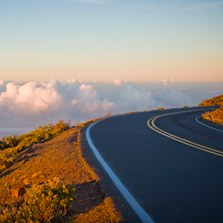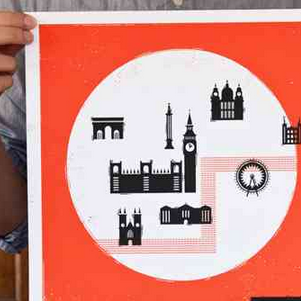How Much Money Do You Need to Live Abroad? 13 Questions to Ask Yourself

This is an excerpt from Working On the Road: The Unconventional Guide to Full-Time Freedom by Nora Dunn.
Traveling full-time can actually cost far less than it does to live in one place. This is due to a number of cost-saving factors, ranging from working in trade for free accommodation, using frequent flyer miles, spending time in places where the cost of living is sometimes cheaper, and judiciously monitoring your spending.
There’s no template solution to how much money you’ll need to begin your life working abroad, but you can use these questions to help gauge the expenses you’ll have and how they can vary based on itineraries, priorities and travel style.

It pays to take the time to define your ideal lifestyle and put a general price tag to it. Things will probably change along the way, but as long as you have the income—or savings—to keep up with Plan A, then Plan B can be tweaked accordingly.
In the guide there is a detailed rundown of all my expenses for 2011 and 2012, as well as other travelers’ spending reports.
Below is a snapshot of my expenses while working on the road in 2011. From volunteering in New Zealand, traveling through North America, Europe, and Asia, and housesitting in the Caribbean, there was a lot of variety. All in all I traversed 13 countries and a total of 73,000 kilometers (over 45,000 miles).

Define your Trip/Lifestyle:
1. Will I maintain a home base and travel from there? Tiffany and Chris spent a year in Australia. They spent almost all of their time living in a van, except when they lined up housesitting gigs for three straight months or stayed with the friends they made along the way.
2. Where am I going? Pay attention to the cost of living/traveling through those countries. By spending the first five months in Malaysia, the SoulTravelers3 family kept their expenses reasonably low, as with the last four months of the year in California where they had a free place to stay.
3. Where am I starting? People who live in Australia and New Zealand, for example, need to pay a lot to go abroad due to their relative isolation, but can get great deals on Round-The-World (RTW) tickets, which are often less expensive when starting from a faraway locale.
4. What do I want to do? Volunteering can reduce your expenses; skydiving won’t.
5. Why am I going? Are you expecting all-inclusive vacations in Europe, or rustic home-stays? Are you on a mission to conquer mountains, or do you want to hit the backpacker trail?

Income:
6. Do I have a business to provide an income along the way? If so, what do you need—financially and logistically—to operate this business? We’ll look at some of these costs later.
7. Am I eligible for a working holiday visa? The type of visas you will need to get depend on the work you will be doing, where you’re from, and where you’re going. VisaHQ.com is a good resource showing basic entry requirements for citizens of any country entering any country.
8. How long will it take me to find a job? This depends on your skills and how in-demand they are where you’re going, and whether or not you have a working visa.
9. How much can I earn? If you are looking for local jobs, how much do they pay? If you are running a business, what are your earnings projections and possibilities?

Expenses:
We all make choices about the money we earn and how we spend it. However, when we’re not conscious of our earning and spending habits, our incomes can end up dictating our lifestyles (think: keeping up with the Joneses), taking the power of life design out of our hands. It’s good to pay attention to where your money is or will go.
10. Do I have ongoing expenses at home? What about school loan payments, property expenses, or family support? Anything else?
11. If my income fluctuates or drops, how many months’ expenses do I need to have in savings to feel comfortable? (During 2011, I managed to stay almost exclusively for free, either by volunteering, house sitting, staying with friends and family, or couch surfing, and only spending $173 for two nights at the Hilton in Stockholm as a special treat!) You’ve got plenty of options but it’s good to have an estimate of your projected monthly expenses.
Insurance & Emergencies:
12. How much money is my medical/emergency/health insurance coverage? Between 2011 and 2012, I picked up a few new insurance policies: property insurance, critical illness insurance, and life insurance. This is in addition to my international health insurance policy (discussed in the guide), which falls into the medical category.
13. For my emergency fund, how much do I need to get home in a pinch?
What does a return ticket cost?

Take a deep breath. We’ve just been through a lot of “stuff”. It may seem daunting, but if you simply give it time and plod through it, the systems you put in place will help you, no matter what life on the road throws at you.
You’ll probably never really feel ready to go. You may want to hide behind a never-ending task list of things that simply “must” be done before you can leave. Don’t use over-preparation as a stall tactic; you can’t expect to do everything perfectly right from the start (and where would the fun be in that anyway?).
I extol the virtues involved in making a leap of faith and plunging into the lifestyle of your dreams. In order to instill significant life changes, you can’t possibly have all the answers before you get started. A general plan, an intuitive gut feeling, and a leap of faith are critical.
This is an excerpt from Working on the Road, written by Nora Dunn for Unconventional Guides.
###







